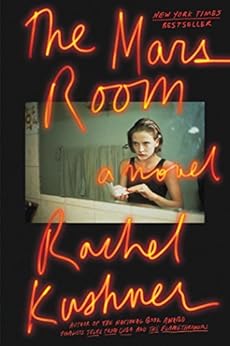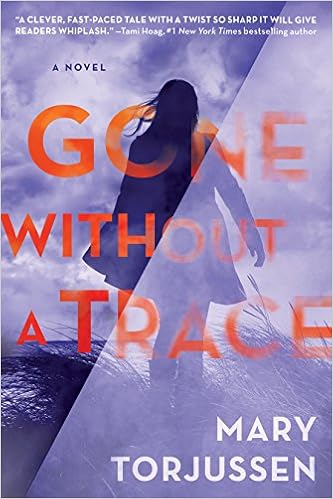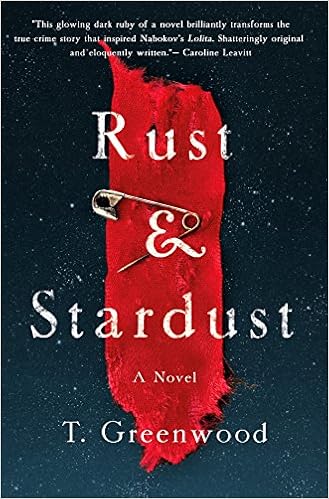 About a
decade ago, over 100 women in an ultraconservative Mennonite colony in Bolivia
were secretly sedated and raped by male members of their community. Some attributed the attacks to ghosts and
demons; some argued the women were being punished by God for their sins; and
others said that the women, with their wild, female imaginations, invented
stories. Miriam Toews used this event
and her imagination to craft this novel from the perspective of women in such a
colony, a novel that is heartbreaking but also uplifting.
About a
decade ago, over 100 women in an ultraconservative Mennonite colony in Bolivia
were secretly sedated and raped by male members of their community. Some attributed the attacks to ghosts and
demons; some argued the women were being punished by God for their sins; and
others said that the women, with their wild, female imaginations, invented
stories. Miriam Toews used this event
and her imagination to craft this novel from the perspective of women in such a
colony, a novel that is heartbreaking but also uplifting.
Eight women
gather secretly in a hayloft after eight men have been arrested for the
assaults. The men will be out on bail
and returning to the community in two days so the women have a short time to
decide how to move forward: do nothing,
stay and fight, or leave. What follows
is a Socratic dialogue in which the women debate how to proceed and touch on
subjects like faith, forgiveness, and love.
There is no evidence of female hysteria; the women debate using
logic.
The
narrator is August Epp who was asked by the women to record the minutes of their
meeting “because the women are illiterate and unable to do it themselves” (1). The women speak only Plautdietsch, “an
unwritten medieval language” (8) so he must also serve as their translator. August is the community’s teacher, though he
and his family were once excommunicated so he spent years living in the outside
world. He is the most educated man in
the colony but is considered effeminate and ineffectual by many community
members because he has no farming skills.
In some ways, his position in the colony is like that of the women who
are useful but lack independent voice and agency.
The novel
is light in plot but heavy in substance; one of the women even says, “’there’s
no plot, we’re only women talking’” (179).
That word “only” perfectly reflects the attitude of many of the men who
see women as inferior beings who endlessly engage in meaningless chatter. Of
course, their talking is anything but that.
Though they shy away from words like revolutionary
and manifesto, that is precisely what
they are composing. One of the women
summarizes the principles most important to them: “As I understand it, what we women have
determined is that we want, and believe we are entitled to, three things. . . .
We want our children to be safe. . . . We want to be steadfast in our faith. We want to think” (153).
The women’s
choices are curtailed by the type of lives they have led and by their religion. They are uneducated and know almost nothing
of the world outside the Molotschna Colony.
One of the women lists the obstacles:
“We girls and women are considering leaving the colony, but has it been
determined among us what we will do, how we will live, how we will support
ourselves, when and if we leave? We’re
unable to read, we’re unable to write, we’re unable to speak the language of
our country, we have only domestic skills that may or may not be required of us
elsewhere in the world, and speaking of the world – we have no world map –“
(80). Even if they could find a map, how
could they read it? They have also been
told that they must forgive the men or they will be denied entry into
heaven. If they leave, they are disobeying
their husbands and such obedience is a major tenet of their faith. If they stay and fight, they would also not
be allowed into heaven: “By staying in
Molotschna . . . we women would be betraying the central tenet of the Mennonite
faith, which is pacifism, because by staying we would knowingly be placing
ourselves in a direct collision course with violence, perpetrated by us or
against us. We would be inviting harm. .
. . We would be sinners, according to our faith, and we would be denied entry
to heaven” (103 – 104).
The novel
examines the plight of women in patriarchal, authoritarian societies. One woman points out that women are not real
members of the colony: “We’re not members!
. . . We are the women of
Molotschna. The entire colony of
Molotschna is built on the foundation of patriarchy . . . where the women live
out their days as mute, submissive and obedient servants. Animals.
Fourteen-year-old boys are expected to give us orders, to determine our
fates, to vote on our excommunication, to speak at the burials of our own
babies while we remain silent, to interpret the Bible for us, to lead us in
worship, to punish us! We are not members, . . . we are commodities. . . .
When our men have used us up so that we look sixty when we’re thirty and our
wombs have literally dropped out of our bodies onto our spotless kitchen
floors, finished, they turn to our daughters.
And if they could sell us at auction afterwards they would” (120 – 121).
Though
there are eight women and it is initially difficult to remember who is who,
gradually distinct personalities emerge.
As the women reclaim their independent thought and find their voices,
the portrait of each woman becomes clearer.
Salome, for example, is the hot-tempered, impatient one. The development of the two youngest,
sixteen-year-old Autje and Neitje, is interesting. At the beginning, they are bored and pay no
attention but gradually become interested, contribute to the discussion, and
even undertake independent action.
The novel
does not focus on what happened to the women but there are occasional glimpses
which are horrifying: Miep “was violated
by the men on two or possibly three different occasions, but Peters [the bishop
of Molotschna] denied medical treatment for Miep, who is three years of age, on
the grounds that the doctor would gossip about the colony and that people would
become aware of the attacks and the whole incident would be blown out of
proportion” (41). Then there’s the case
of Nettie who “was attacked , possibly by her brother, and gave birth
prematurely to a baby boy so tiny he fit into her shoe. He died hours after being born and Nettie
smeared her bedroom walls with blood.
She has stopped talking, except to the children of the colony, . . .
[and has] changed her name to Melvin . . . because she no longer wants to be a
woman” (45 – 46).
Considering
the seriousness of the discussion, humour might not be expected, but there are
some humourous sections. Salome has a
number of heated exchanges with Mariche about precision in word usage: “Mariche shakes her head at this,
indignant. She apologizes sarcastically
for using the incorrect word, a sin so outrageous that Salome with her Olympian
airs and almighty mind must take it upon herself to rectify for the sake of
humanity” (41). And some of the
observations made cannot but bring a smile; for instance, Salome says, “by
leaving, we are not necessarily disobeying the men according to the Bible, because we, the women, do not
know exactly what is in the Bible, being unable to read it. Furthermore, the only reason why we feel we
need to submit to our husbands is because our husbands have told us that the
Bible decrees it” (157).
This novel is a must-read. Because of its subject matter, it invites comparison to The Handmaid’s Tale. It also invites a re-reading.





